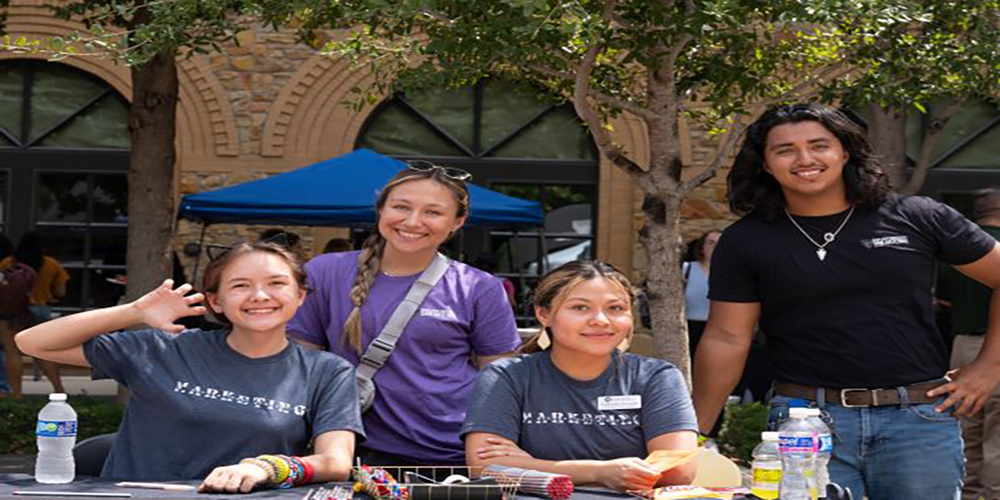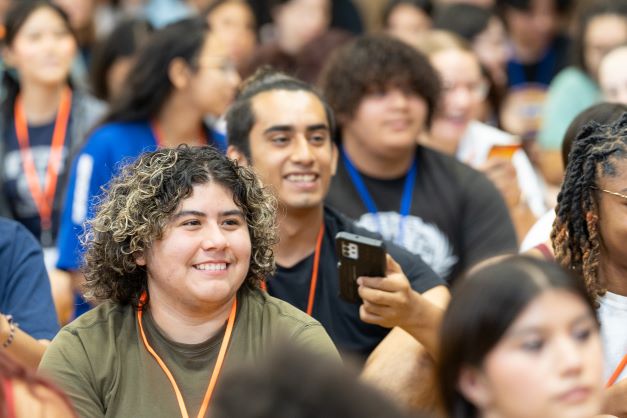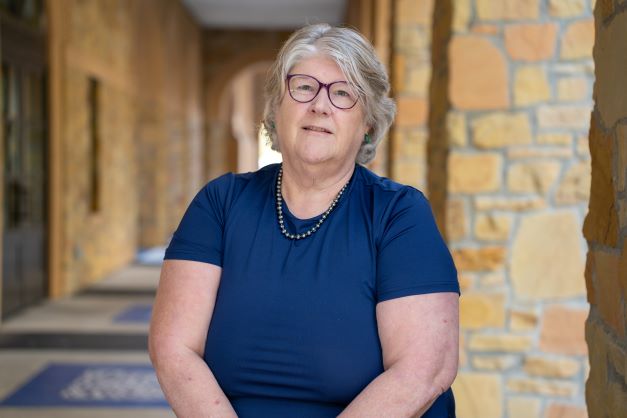
Texas A&M University-San Antonio is bolstering its efforts to strengthen student success and retention through innovative new programs, faculty development, grants and new hires.
Approximately 77 percent of A&M-San Antonio students identify as Hispanic, and roughly 72 percent are first-generation students. Many of these students face unique challenges, from academic to financial. The University’s new initiatives and programs are designed to help non-traditional students succeed in higher education.

“Student success is one of the most important things we are focused on,” said Dr. Mohamed Abdelrahman, provost and senior vice president for academic affairs. “A&M-San Antonio was created on the Southside to support a group of students that are underserved and that makes it especially important for us to support their retention and eventual graduation. This is the group (of students) who have entrusted us with their education and investment. We have to be able to return that trust in a positive way by helping them succeed.”
As part of its ongoing mission to help students succeed, the University hired Dr. Diane Gavin as the executive director of the Center for Academic Innovation, which helps advance student-centered teaching and scholarly activities related to learning and technology integration.
Gavin, who brings 27 years of experience in higher education administration to A&M-San Antonio, will be working with faculty members to find creative solutions and provide the best support systems for students to succeed.

Dr. Diane Gavin is the executive director of the Center for Academic Innovation
“What we are doing in academic innovation is looking at new learning systems,” Gavin said, adding that the University strives to forge relationships and engage students with personalized instruction. “We’re looking to create trust between the faculty and the students, and that builds trust in the community for A&M-San Antonio.”
Gavin explains faculty development is one of the keys to achieving student success. “When faculty are engaged in the classroom, they engage students,” said Gavin. “We want faculty to bring their students along with them so they can see the path to their future.“
“When faculty are engaged in the classroom, they engage students. We want faculty to bring their students along with them so they can see the path to their future.”
Dr. Diane gavin
Several grants received from the U.S. Department of Education (DOE) will provide critical funding to increase support for undergraduate and graduate students and expand faculty development.
One example is the $3 million Caminos Hacia el Éxito (Pathways to Success) led by Dr. Duane Williams, associate vice provost of student success and retention. The Pathways to Success grant aligns with the University’s mission to transform lives and focuses on serving the needs of undergraduate students – particularly first-generation and low-income students – who need academic support to be successful in college and earn their degrees. The grant also provides professional development for faculty members who will be instructing those students.
“When you think about our mission and strategic plan, it speaks about being a transformative institution,” Williams said. “The concept of being transformative means that you are taking into account where an individual is in his or her trajectory and helping them launch into their goals and aspirations. I see this as a launch pad that evokes that transformative experience.”
Moving forward Williams will be working with faculty members to provide built-in tutoring and supplemental instruction for core gateway courses at the University, such as algebra, chemistry, and English, which often pose challenges for first-year students.
During the fall 2023 semester, A&M-San Antonio expanded its tutoring program through the online platform Brainfuse. The platform offers tutoring to students in various subjects, with tutors available during the day and night, including on weekends.
Another prominent DOE grant is the $3 million Proyecto Éxito (Project Success), funded through 2027, which is part of the Promoting Postbaccalaureate Opportunities for Hispanic Americans program. Dr. Ting Liu, dean of graduate studies and Proyecto Éxito director, said the grant will offer exceptional opportunities for academic, professional and personal growth, helping graduate students excel in their chosen field.
“We are dedicated to providing comprehensive, career-responsive academic and co-curricular programs, scholarships and research to equip our graduates with the knowledge and marketable skills essential for a successful career,” said Liu. “That is truly our goal and mission for the graduate studies.”
Liu, who assumed the role of the University’s inaugural dean of graduate studies in September, A&M-San Antonio is in the second year of the Proyecto Éxito grant, which will be funded for five years.
The grant helped create The Center for Graduate Student Success, otherwise known as El Centro Para El Exito de los Estudiantes Graduados, which provides resources for graduate students including access to textbooks, laptops on loan, advising, tutoring and professional development opportunities.
Also included in the Proyecto Éxito grant are funds for professional development programs in empowering graduate students for career preparation, as well as training graduate faculty on the design and delivery of cutting-edge and culturally responsive pedagogy and career-relevant curriculum for the benefit of graduate students.
Other grant funds include the hiring of faculty mentors, faculty fellows and student tutors who will provide academic and mentoring support to graduate students.
The grant signifies more than just financial support for the University. “It is a commitment to the success of our graduate students and the advancement of academic excellence,” Liu stated. “By fostering an inclusive and supportive environment, we aim to propel our graduate students towards successful completion, enriching their academic and professional journeys, and helping reduce the time and cost to complete their graduate degree.”